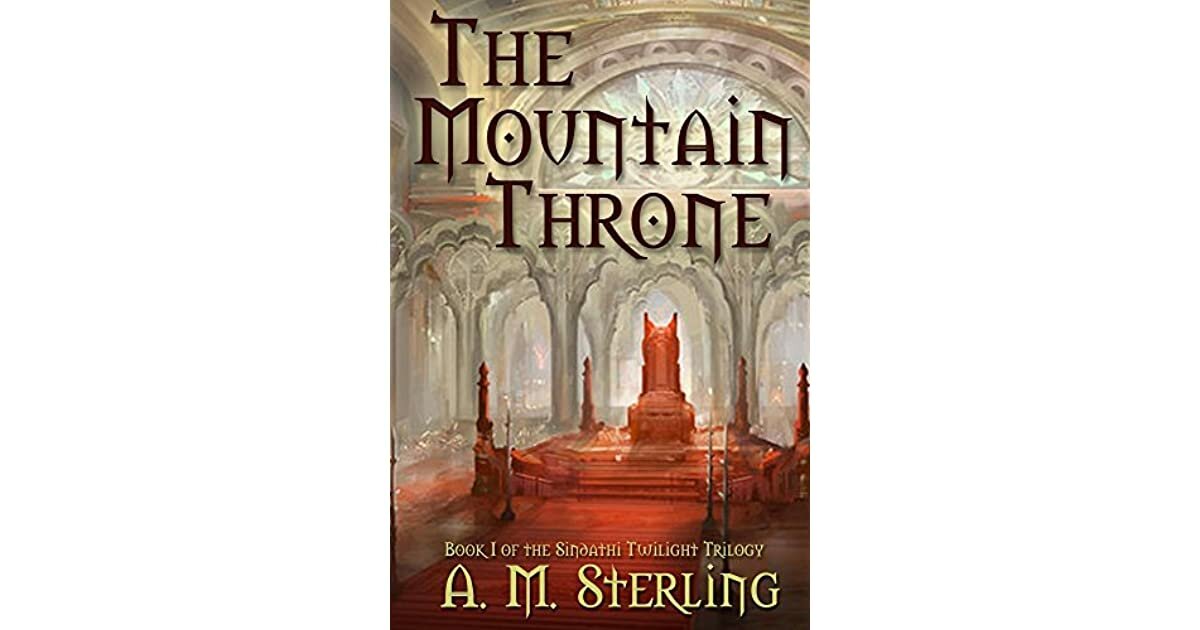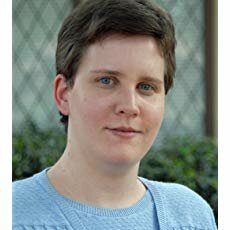Aaron Sterling is an electrical engineer, Army intelligence veteran, and lawyer. He’s the author of “The Mountain Throne“, the first of the Sindathi Twilight books. He’s working on a sequel to that novel due out in 2020 tentatively titled “The Dark Brother”.
Tamara Wilhite: You mentioned that your day job is working as an engineer for the D.o.D. How then did you end up with a law degree?
Aaron Sterling: Law came first, actually. Things were bad for lawyers during the Great Recession and so I used some residual education benefits from my military service to go back to school for engineering. A childhood friend of mine had done the engineer-lawyer thing and entered patent practice, and his career didn’t suffer much because there are only a relatively few lawyers qualified for that kind of work, to begin with. Thought I’d do the same thing.
In engineering school, I got a fairly exclusive, valuable scholarship that had DoD strings attached. So that’s where I went when I graduated.
Tamara Wilhite: You’ve edited law review articles as well as worked in military intelligence. How has this experience influenced your writing?
Aaron Sterling: For the former, it has helped my editing. I spent two straight years checking sources for correctness, relevance, and formatting, along with the clarity, syntax, and grammar of prose. It got to the point where I could see the difference between a period and an italicized period at a glance. I still ‘don’t see’ some of my own mistakes, like every author, but my technical writing skills are well-honed.
My MI experience has helped with world-building and intrigue. I spent some time in geopolitical analysis. That kind of analysis is rooted in fundamental facts, like geography and climate, and their implications. By understanding how these things affect real cultures and nations, it makes the ones I invent more plausible. And since my MOS dealt with human intelligence, scenes or plot points dealing with espionage or political or military intrigue are salted with the same kind of plausibility.
Tamara Wilhite: Your first novel “The Mountain Throne” has been compared to George R. R. Martin’s works, at least in terms of world-building. What do you think prompted the comparison?
Aaron Sterling: I don’t think it is world-building, specifically. A Song of Ice and Fire’s similarities to real world inspirations, from the Wars of the Roses and Hadrian’s Wall to the Colossus of Rhodes and Renaissance Italy, are oft-discussed. But there are other gaps. The political system is a rough, simplified facsimile of generic European feudalism. There are an unrealistically small number of languages or dialects. There is no calendar; not even measurements of days or weeks. I know unpredictability of seasons is part of the premise, but wouldn’t that make the measurement of smaller units of time more important? Wouldn’t the people try to predict when the next winter would arrive? The ancient Babylonians spent generations tracking the regular movements of stars and planets for astrological purposes. Much of the world-building is derivative from Earth (which is easy and familiar, to the writer and readers). Mine isn’t.
I think the comparison is really because of similarity of style. Both stories could be described as low-fantasy political intrigue, and there are certain common approaches in the treatment of magic, the social and political rank of the characters, and the premise of the stories. Much, if not most, of the history of fantasy has been “epic” or “high” fantasy with grand events, noble elves, wicked orcs, and clear cut lines of all sorts. I deliberately do not write that way, and neither does Mr. Martin. The low-fantasy style, itself, probably demands certain similarities. So simply by virtue of being different in the same way, we would engender some comparison.
Aside from sub-genre, I think there are similarities in how we treat characters. ASoIaF has been described as a sort of fantasy soap opera. There is a large number of relevant characters, but only a relative few of whom are meaningful to the whole story. Those few are static. Their relationships, usually by blood or marriage, tend not to change much, if at all, they rarely die or otherwise drop out of the story. Personal drama is magnified. It is, in large part, a character story driven by certain world events and circumstances.
The Mountain Throne is also a character story, though not in the same way. I have only three perspectives, not two dozen. Emphasis is on those few characters’ development. They change. Their relationships change. The focus is tighter. But they are still both limited-perspective, ensemble character stories, which tend to be uncommon in fantasy.
Tamara Wilhite: I know that many writers are simply happy to find paying work. How did you end up writing video game fiction?
Aaron Sterling: It was paying work. I found online (I forget how) a place where people advertised for writing jobs, and someone wanted fantasy world-building. I submitted a sample and got hired. It paid by the word and I worked at it for a few months. It was the first hint that my fantasy musings might be worthwhile. I’d never written for anyone else, before.
Tamara Wilhite: Can I ask what video game franchise it was for?
Aaron Sterling: Days of Darkness, or something like that. I don’t think it ever came out. It was someone’s pet ambition in the early 21st century, not an established studio.
Tamara Wilhite: You’ve designed board games and tabletop roleplaying games. What is that like?
Aaron Sterling: More like work than you might guess. Games are systems. No matter how fun or enjoyable the theme or setting or fluff, the game itself is just a system of numbers and rules, not terribly different from programming. You need to understand probability to know how the dice or cards or whatever are likely to fall, and recognize what tweaking this does to that. There have to be bounds, to control runaway results, and the variables evolve as the game does; early-game differs significantly from late-game, so the system has to be able to account for that. Any game with currencies needs to have attention paid to resource-management and scarcity.
Anyone who has spent much time in board gaming has been disappointed by something that looked or sounded cool, but failed in execution. That’s because the designers didn’t understand well what I just told you. Believe it or not, there are designers who think that, when using 2d6, the probabilistic difference from 7 to 8 is the same as from 8 to 9. Nope.
Tamara Wilhite: Did the detailed world-building required to create such games influence your fantasy books?
Aaron Sterling: Absolutely. My books started as a video game. The video game started as an incarnation of the tabletop RPG. I eventually determined that I couldn’t do everything I wanted to do in the video game, so turned it into a book. The RPG came first and birthed everything else. Now, the books lead to refinement of the world. For example, my second book, The Dark Brother, deals with a caste system that is only generally treated in the RPG setting. But now that I have characters in it, I have had to fill out significant details. Those details feed back into the RPG.
Tamara Wilhite: Those are all the questions I had. Is there anything you’d like to add?
Aaron Sterling: I don’t write to get rich. It’s nice to sell books, but I value good reviews more than dollars. I write for the satisfaction of creating something good and overcoming a personal challenge. A magnum opus approach. Once that’s done, I intend try other projects that are easier and probably more sale-able.
Tamara Wilhite: Thank you for speaking with me.



Comments
Leave a Reply